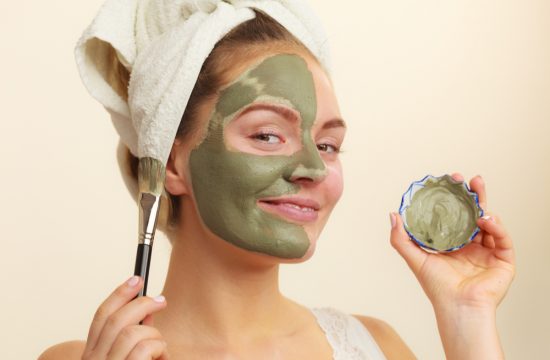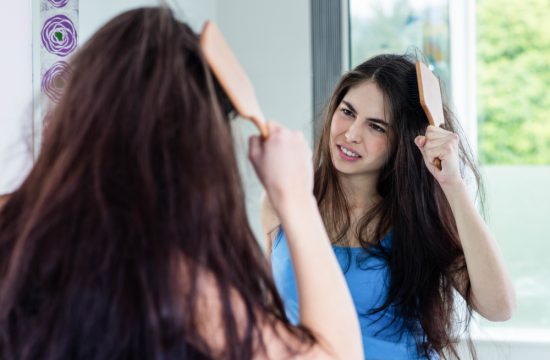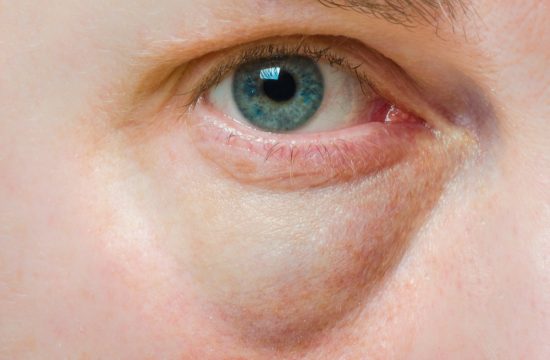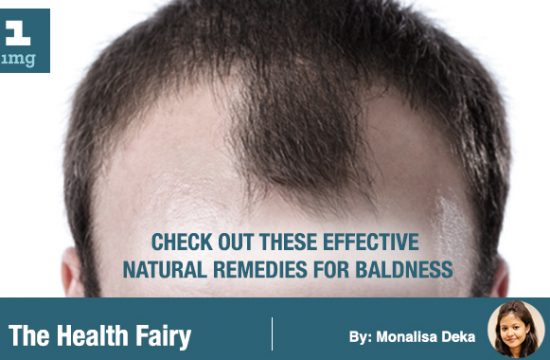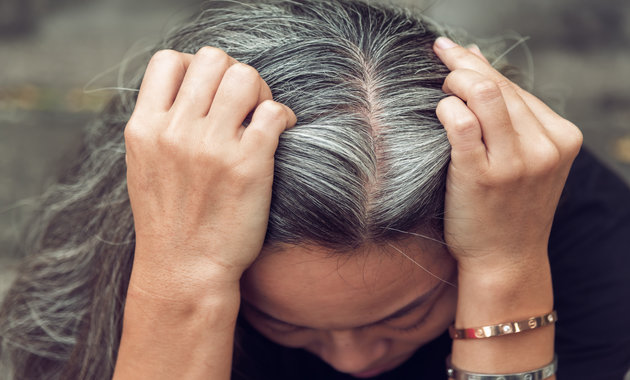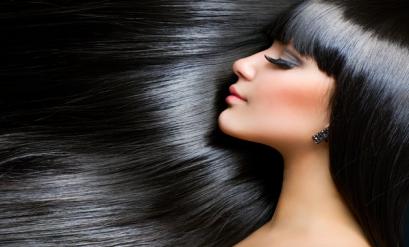
Winters have already knocked your doors! You must be happy thinking that gone are the days of scorching sun which is one of the major reasons of hair damage. But hold on! Winter means a whole set of new problems that you have to deal with. With whipping winds, cold temperatures and dry air, winter bring with itself extremely harsh environment that our hair has to fight continuously. Your hair starts to find it difficult to retain moisture, making it brittle and prone to breaking. It also tends to become frizzy and static-prone just like your winter wardrobe.
Therefore, making a regimen for healthy hair is important if you want to save your beautiful locks.
Hair Care Tips In Winter At Home
Due to reduced moisture holding capacity of air at lower temperatures, winter tends to be dry. This leads to the major loss of moisture from the body, which is why the natural glow of the skin and hair vanishes during the winter season. The cold factor of the winter weather can have brutal effects on the hair and scalp and can cause long-lasting damage to a healthy mane. Constant shift between warm indoor temperatures to cold outside weather conditions may result in wearing away of the cuticle layer (the outside protective layer) of the hair, making it prone to dryness and frizz, ultimately causing dullness, reduced strength, split ends and static locks. Have a look at some important hair care tips which you can follow at home.
1. Shine and strengthen with oils
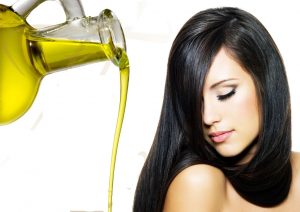
Using natural oils, like coconut oil, almond oil, mustard oil, argan oil, avocado oil, extra virgin olive oil, rosemary and jojoba oil, adds moisture and shine to the hair. They nourish the scalp, prevent dry and flaky skin and help get rid of dandruff. Additionally, they aid faster and healthier hair growth. Massaging slightly warm oil to the roots and scalp, while working down towards the tips, is the correct way of applying oils. This is, then, followed by covering the head with a shower cap to ensure soaking for about half an hour and subsequent wash.
2. Do not over shampoo
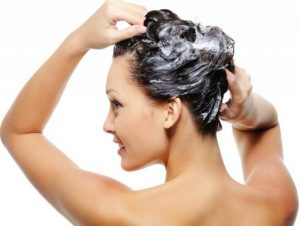
The process of cleansing the hair starts with rinsing the hair, followed by lathering it with a suitable shampoo product, rather gently, and with a cold water rinse. But in winter it is recommended not to shampoo your hair too frequently as it strips of natural oil from your hair. This might also cause itchy and flaky scalp. Mild shampoos, those with light surfactants are readily available in the market. Some of them can even be prepared at home, using natural ingredients like baking soda, and coconut oil, which have extraordinary cleansing properties.
3. Indulge in some deep conditioning
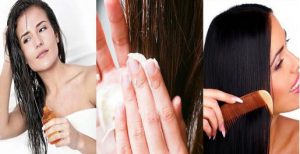
In winter, your hair bears the brunt of extremities of weather, and excess use of hair styling procedures strips nutrients from the hair, making it look limp and lifeless. Conditioners step in to provide the required nutrition to the hair. It optimizes the moisture level of the hair and also provides the required strength and lustre to it. An important point to be kept in mind while applying conditioners is that they should never be applied to the roots, but starting at the tips and reaching the top, about an inch from the scalp.
4. Detox your hair with a nutritious mask
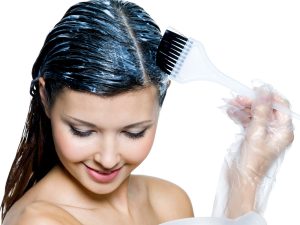
Masks are a great food for your hair. It makes the hair healthier and adds softness and shine to it. There are a wide variety of hair masks available in the market but its best to use ingredients which are easily available in your kitchen. Best ingredients for hair masks include olive oil, raw coconut oil, raw honey, avocado, and ripe bananas, made in any combination and proportion, depending on the requirement of a specific hair type. Use a good mask once a week for effective results.
5. Regular hair trim
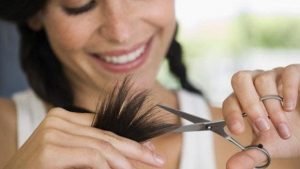
Split ends can give you real nightmares! And with the chilly weather, your hair will become dry and brittle along with dreadful split ends. Getting a trim every few weeks reduces the chances of occurrence of split ends by about 80%, and keeps the hair healthy and strong.
6. Cold showers

Preferring warm water over hot water for hair wash ensures the restoration of the moisture in the hair, prevents any chances of frizz or dryness in the hair and provides exfoliation to the scalp. Exfoliation is necessary to maintain a regulated blood circulation to the scalp.
7. Stay natural
It is always better to prefer natural products for hair care, including hair wash and conditioning. Shampoos containing sodium lauryl sulphate or sodium myreth sulphate need to be avoided completely as they are strong detergents. One can make shampoo out of the soap nuts, which contain natural surfactants and can cleanse without causing any damage to the hair.
Using a conditioner that contains essential fatty acids, similar in nature to sebum, helps restore the moisture in the hair. Also, fatty alcohols like cetyl or stearyl alcohol prevent excess drying of hair due to hair wash during the winter season.
8. Avoid hair dryers
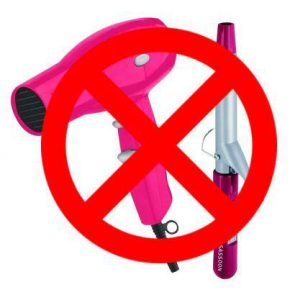
Use of styling tools like blow dryers, curling irons and straighteners should be reduced to the minimum, since the winter weather is hard enough on the hair and its health. Leave-in conditioners or heat-protective products must be applied first, followed by a blow dryer on low heat, should one need to use it.
9. Use wide tooth comb
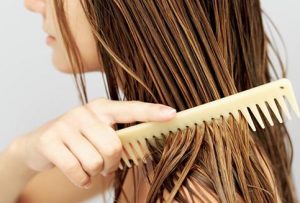
Wide tooth combs and broad bristle hair brushes are known to easily detangle wet and dry hair, thus reducing the chances of hair fall. During winters, when the hair is already too dry due to the stressful environmental conditions, wide tooth comb and broad bristle hair brushes provide the much-needed-respite. Additionally, it goes gentle on the scalp and avoids any split ends and breaks in a hair strand.
10. Eat healthy

Increasing the intake of foods rich in iron, zinc, vitamin D and E during the winter season ensures optimum and healthy hair growth. Adding foods like spinach, green leafy vegetables, citrus fruits, nuts, carrots, and eggs provides the necessary nourishment for hair growth.
11. Optimum hydration

Finally, drinking plenty of water helps maintain a good and healthy mane even during the harsh winter weather conditions. It is recommended to every individual to drink 8-12 glasses of water on an average.
In addition to following a proper regimen for healthy hair during winter, it is also important to follow some simple yet effective home remedies. Have a look.
Home Remedies For Healthy Hair
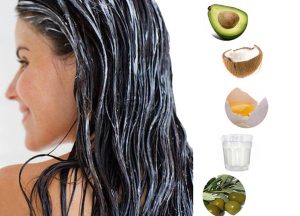
Following are the remedial ways to treat season-borne damages to the hair- frizz, limpness, static, flakes, brittleness, and other cosmetic and styling related damages.
- The acid in apple cider vinegar smoothens the frizz and provides new life to dull and damaged hair. Mix 2tbsp of apple cider vinegar with one cup water and pour it over your hair. Rinse thoroughly.
- Beer nourishes hair extraordinarily. It has nutrients, minerals, vitamins, amino acids and antioxidants that your hair needs. Pour it over your hair, let it sit for 3-4 minutes and rinse with cold water.
- Bananas are a rich source of natural oils, potassium, carbohydrates and vitamins. Make a mask of banana and egg and apply on hair.
- Coconut milk contains a natural light protein and moisturizes the hair, even in harsh winter season. Massage well with coconut milk from roots to tips.
- Yogurt is an excellent source of biotin, vitamins and proteins, making it a great treatment for hair. To use, simply blend yogurt with other natural ingredients or oils to create a hair mask.
- Eggs are one of the richest sources of protein. Making a hair mask out of them every week, especially when combined with other natural ingredients such as yogurt, honey or avocados, maintains the natural sheen of the hair.
- Carrots are a repository of beta-carotene, a precursor of Vitamin A, an essential nutrient for growth and strength of tresses. Blend a carrot, banana, olive oil and curd to make a thin paste. Apply this mask on the hair for about 30 minutes, followed by regular cleansing routine. This stimulates hair growth, prevent hair brittleness and make hair healthy, smooth, silky and manageable.
- Lemon Juice is a storehouse of nutrition. The vitamin C present in huge amounts in lemon is, actually, an antioxidant that fights free-radical damage. This boosts collagen production and restores skin elasticity, keeping the hair healthy and the scalp free from any flakes.
- Honey is composed mainly of fructose and glucose. Additionally, it contains proteins and amino acids, vitamins, enzymes, minerals and other minor components that nourish the scalp and result in a healthy hair growth.
- Avocado is rich in a variety of vitamins, including, D, E and A. It can be blended with other natural ingredients such as yogurt or egg yolk for a luxurious hair treatment.
- Garlic is used as a treatment for hair loss and promotes healthy strands. Cut garlic into tiny chunks in a glass container with a bit of water and leave overnight to extract the juices. This tonic may be used as a pre-treatment, by applying it to the scalp before shampooing for 20 minutes.
- Rosemary stimulates hair follicles while promoting hair growth. It is a powerful herb to get healthy and strong hair.
- Aloe vera contains proteolytic enzymes that repair dead skin cells on the scalp. Further, it acts as a great conditioner and keeping hair smooth and shiny. It promotes hair growth, prevents itchy and flaky scalp, and conditions the hair. Its chemical make-up is similar to that of keratin and, thus, it rejuvenates the hair with its own nutrients, giving it more elasticity and preventing brittleness.
- Green tea has high-quality antioxidants that prevent harmful free-radical damage that contributes to a damaged scalp. Additionally, it protects the hair against UV damage. Brew 3 to 4 cups of green tea and allow the syrup to cool. Pour the tea on damp hair and allow it to sit for 10 minutes, followed by washing the hair with a mild shampoo. Repeat for 1-2 times a week to nourish your hair and boost hair growth.
- Leaves of Henna are ground and powdered to make a paste out of it. This recipe has been used since times immemorial to strengthen, nourish and beautify the tresses.
- Amla, or Indian Gooseberry, is an edible fruit rich in Vitamin C. It is commonly used in Ayurvedic medicine to promote healthy and glossy hair.
- Earthen Clay, commonly known as Multani mutti, is formed by the decomposition of volcanic ash. It amplifies volume and the lift by drawing excess oil from the hair and scalp.
- Almonds can improve hair texture and reduce the intensity of sun damage and making hair healthy from within. The high vitamin E content in almonds wards off the damaging free radicals and even oxidative damage, providing the healthy and shinier sheen to the hair.
- Mayonnaise is a homemade treatment for deep moisturizing, to get hair healthy. It is rich with protein required to strengthen hair strands for longer and shinier hair.
- Peanut oil is filled with essential vitamins such as Vitamin E, A and D that help to grow strong, healthy hair. It is ideal for curly hair types, coarse and dry, damaged hair. It can be used alone for a hot oil treatment.
- Tomatoes are rich. Prepare a hair mask by blending together 2 tomatoes, 1 tablespoon of extra-virgin olive oil and 2 teaspoons of aloe vera gel into a homogenous paste, to apply on the scalp for 30 minutes. Wash away the paste as a normal routine.
- Oatmeal is rich in protein, biotin and other B vitamins that are beneficial for skin and hair. To make dry shampoo at home, grind 1 cup of oatmeal into a fine powder. Add ½ cup of baking soda to it and mix well. Store it in an old talcum powder bottle. Whenever you have oily hair, simply sprinkle a little of the dry shampoo into your greasy hair and then brush your hair thoroughly.
Staying natural is the best way one can achieve a long-lasting health and shine. Home-made hair care remedies are not just a hearty way of maintaining a glossier mane. It is even an economical choice, that has limited side effects, in comparison to the plethora of chemical treatments available out there.
Take care of your gorgeous locks, they deserve the best.
660 total views, 1 views today
